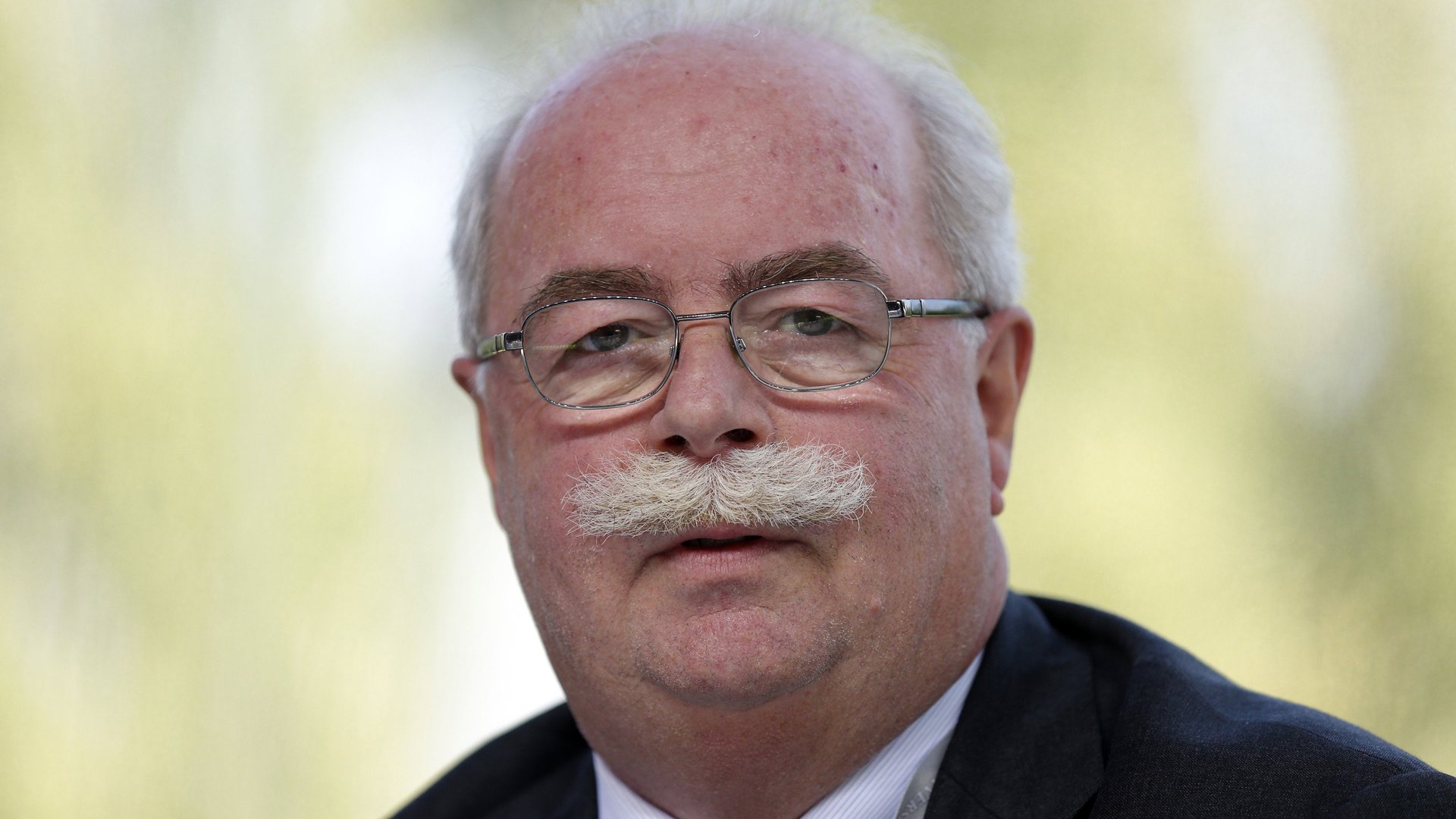Christophe de Margerie was willing to go anywhere in search of oil—and unwilling to apologize for it
This updates with comment from John Browne, former head of BP.


This updates with comment from John Browne, former head of BP.
Oil CEOs are a laconic breed, guarded after decades of attacks by environmentalists, conspiracy theorists and other critics. The occasional outspoken oilman usually exhibits swagger and imperiousness, part of a tradition going back 140 years ago to the birth of the industry with John D. Rockefeller.
But not Christophe de Margerie, the CEO of France’s Total, who died at age 63 tonight in a plane crash at Moscow’s Vnukovo Airport. His private plane hit a snow removal machine on takeoff, killing de Margerie and three crew members.
De Margerie was often outspoken, but never disagreeable. He was dismissed as flaky by some peers, but they were wrong—he was simply an industry original who refused to observe the accepted decorum. “We all think the same,” he once told the Economist about his fellow oil bosses. “It’s just a question of whether we say it.”
John Browne, the former head of BP, said that de Margerie actually went further than others. “Christophe was an inspiring and creative man, a breath of fresh air in a very conservative industry,” Browne told Quartz. “He was a good friend and I will miss him greatly.”
In France, where he was a scion of the champagne-making Taittinger family, de Margerie was called Big Moustache in honor of his unruly whiskers. But his legacy includes taking Total into the frontiers of the new oil world, including Iraqi Kurdistan, French Guiana, Tajikistan and of course, for his biggest play, deeper into Russia.
De Margerie unapologetically made deals in controversial places—initially as a rare industry believer in “peak oil“—and many of his competitors ended up following in his tracks. This occasionally got him into trouble:
- In May 2013, Total paid $398 million to settle US allegations that it bribed an Iranian official; French prosecutors recommended charges against de Margerie himself before they were ultimately dropped.
- A court last year also dismissed charges that he unlawfully did business with Iraq under Saddam Hussain.
- In May, he was one of the few western oil executives who, at least at first, rejected Washington pressure to shun Vladimir Putin’s regime. “My message to Russia is simple—it is business as usual,” he said.
He was not without nuance. In 2010, a journalist asked de Margerie whether there was anyplace he wouldn’t drill for petroleum, and he suggested there wasn’t. Yet, just two years later, he declared that no one should produce oil in the Arctic—it was too dangerous (although he would explore for natural gas there, he said.).
“He was a remarkable and refreshing leader in the oil industry,” David Goldwyn, a private consultant and former US diplomat for international energy, told Quartz. “He always said what he thought with bluntness, insight and panache. He had no taste for political correctness, and was not above criticizing his industry, for overspending or overreaching, when it was appropriate.”
Unsurprisingly, among de Margerie’s most enthusiastic fans were journalists, whom he served up quotes and observations they could obtain nowhere else, all of it on the record. Here are a few of his iconoclastic greatest hits: